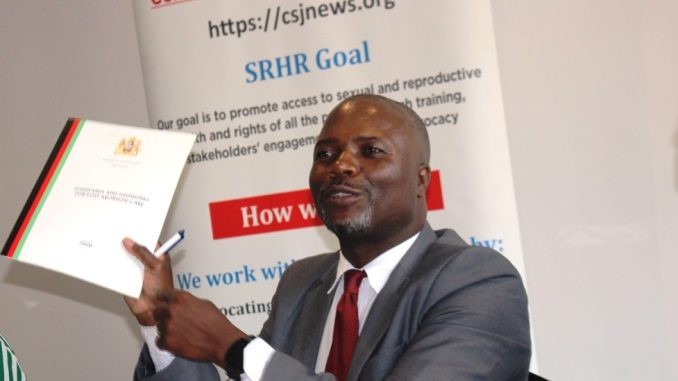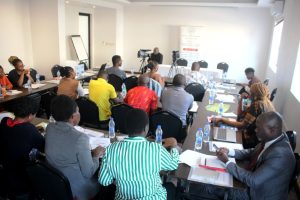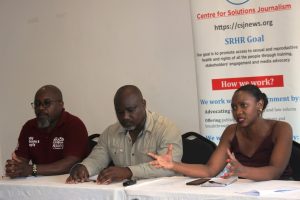
BY STELLA KAMWANA
BLANTYRE, Malawi
The Centre for Solutions Journalism (CSJ) has urged health service providers in Malawi to improve their delivery of comprehensive sexual and reproductive health services while avoiding the alienation of clients through negative judgmental attitudes, stigma, and discrimination.
CSJ Executive Director Brian Ligomeka shared these perspectives during an SRHR convening for health workers in Blantyre over the weekend.

“We cannot engage in discussions about safe motherhood while teenage pregnancies and unsafe abortions are prevalent. The high rates of unplanned teenage pregnancies and the resulting unsafe abortions can be linked to teenagers’ apprehension about seeking services at public health facilities due to the negative attitudes exhibited by some health workers,” he stated.
Ligomeka emphasized that the time has come for individuals to have access to quality and non-judgmental comprehensive sexual and reproductive health services.
He expressed his concern that, despite the presence of laws such as the Public Health Act, the Gender Equality Act, the National SRHR Policy, the Youth Health Friendly Service Strategy, and the Post-Abortion Care Guidelines, some health workers still hesitate to provide quality SRHR services.
During the same event, Molly Nkosi, Executive Director of the Vital Rights Foundation, noted that various legal and policy frameworks empower health workers to offer services in compliance with the law.

She referenced Section 19 of the Malawi Gender Equality Act, which ensures the right to comprehensive sexual and reproductive health services for all individuals as an illustration of such legislation.
“This section encompasses the right to access SRHR services, family planning, the ability to determine the number and timing of children, and the management of one’s fertility and contraceptive options,” she clarified.
Nkosi pointed out that while some individuals believe that access to abortion is illegal, Section 243 of the Penal Code permits health workers to perform abortions to safeguard the life of a pregnant woman or girl.
